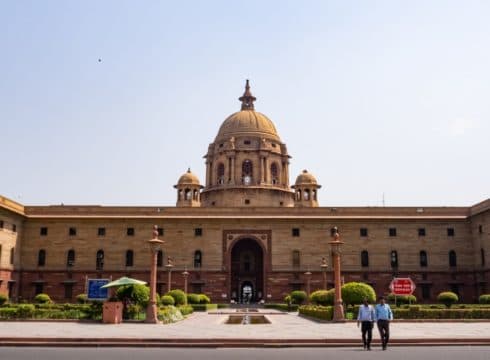India’s draft data protection policy has proposed internet companies to store Indian users data locally
The data protection policy is undergoing another round of consultations
Draft ecommerce policy has also proposed data localisation norms
Inc42 Daily Brief
Stay Ahead With Daily News & Analysis on India’s Tech & Startup Economy
India’s Prime Minister office is said to take a stand on the country’s data localisation policies, according to a media report. The proposed personal data protection bill is currently undergoing another round of consultations.
Various draft policies have noted data localisation norms as a part of their proposed regulations, including the strict data localisation stance in the draft ecommerce policy, and personal data protection bill has proposed localisation regulations based on the categorisation of data under headers such as sensitive and critical. Whereas, the Reserve Bank of India (RBI) has said that in case of domestic data, a copy of user data can be stored abroad.
“The matter is now with the PMO. They will firm up India’s stance on data localisation,” a government official has reportedly said.
The Indian government released draft data localisation rules in December 2018, which calls for internet companies to store data in Indian servers without creating mirror sites overseas. Since then the debate is on between players like Wipro, Paytm, Reliance (in favour) and foreign companies such as Mastercard, Amazon (looking for more clarity) as well as Nasscom among others.
RIL in its annual report said that Jio is a strong supporter of local storage of data, which is critical for national interest and security. It also added that Jio believes Indians are true owners of their data and ownership should not be transferred to any corporate entity.
India’s Commerce and Industry Minister, Piyush Goyal has also said at the G20 Summit that countries must have sovereign right to use their data including personal, community, and public data, for welfare of people, and advocating for free trade should not be necessarily lead to justification of data free flow.
In May this year, concerns related to ecommerce, data localisation and data protection were the main focus of discussion between India’s Suresh Prabhu, the former minister of commerce and industry and Wilbur Ross, the US secretary of commerce during Indo-US bilateral talks.
According to Ross, India’s draft ecommerce policy favours domestic players and hence it does not ensure a level playing field for foreign companies such as Amazon and Walmart who have invested heavily in Indian companies.
Meanwhile, the US-India Strategic Partnership Forum (USISPF), a trade lobby which looks at the interests of US-India commerce, had said that new ecommerce rules are regressive and could potentially harm consumers in the long run.
Last year, two U.S. senators had written to Prime Minister Narendra Modi asking the government to soften its stance on data localisation. They have also added that complying with the (Reserve Bank of India) RBI’s localisation directive may result in imposition of “key trade barriers” between the two nations.
Note: We at Inc42 take our ethics very seriously. More information about it can be found here.


